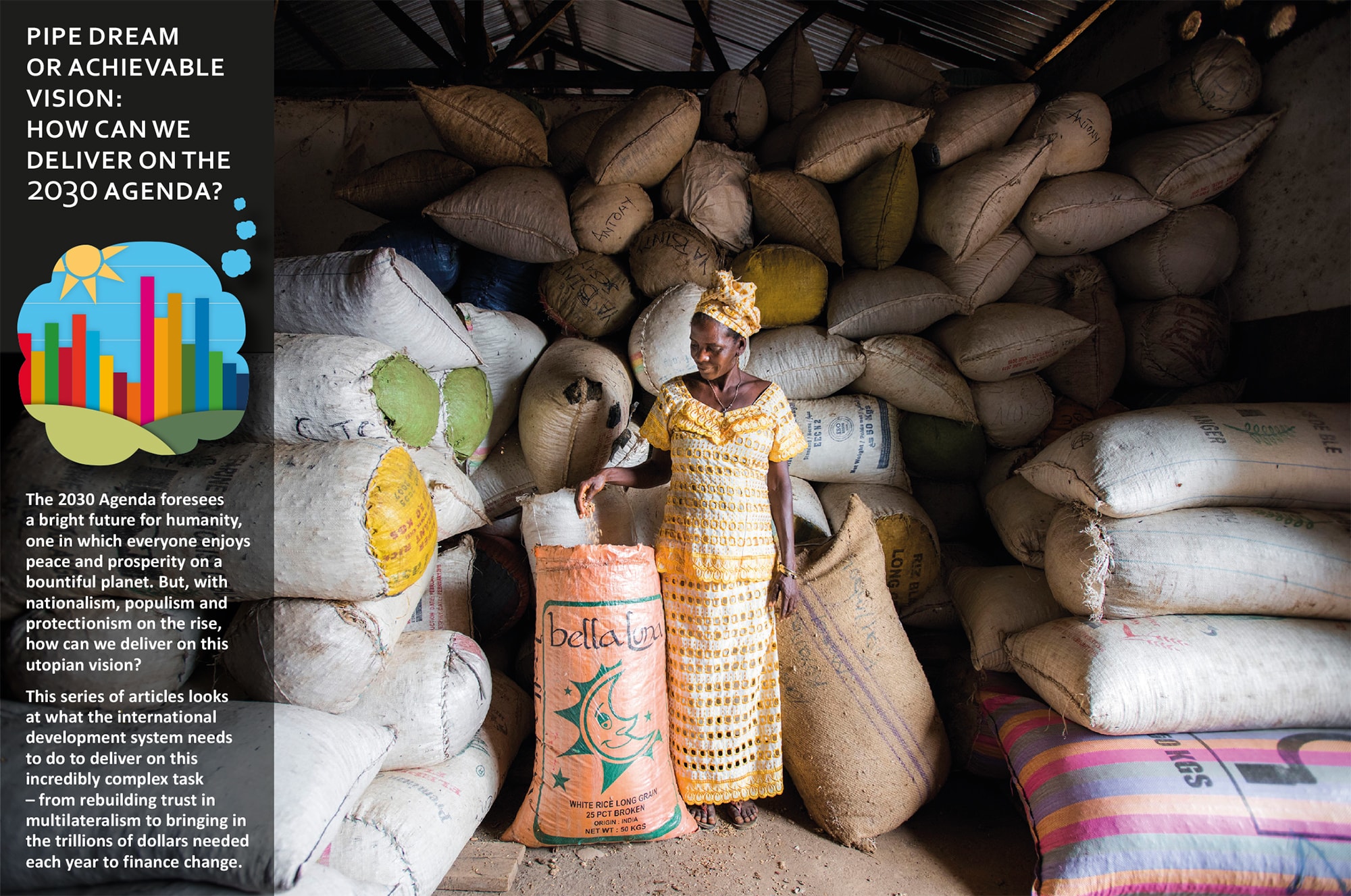On 4 July 2018, the city of Rotterdam, in the Netherlands, unveiled a new and exciting part of the city’s landscape: the world’s first floating park made entirely of recycled plastic waste. Appropriately named the Recycled Park, the initiative comprises floating plastic debris collected from rivers and waterways; it is located in the city’s harbor and is essentially a 140 square meter floating platform with green space on top.
The Recycled Park is the brainchild of the Recycled Island Foundation (RIF), a young organization which seeks to take an active approach towards the issue of plastic pollution in open waters. The aim of the Recycled Park is to show that recycled plastic collected from open waters is a valuable material and could be easily recycled for different uses, including the creation of new green areas in the city. The floating green structures have an ecological function in the river and act as the habitat for micro and macro fauna such as snails, flatworms, larvae, beetles and fish.
In order to harvest the plastic to build the structure, the Recycled Island Foundation developed three passive litter traps to catch the plastics by using the existing stream of the river. They have been placed in the water for a trial period of 1.5 years in the New Meuse River (Nieuwe Maas). During this trial, the traps have been tested, monitored and optimized.
As seen before on Impakter with our recent articles about Plastic Whale or Studio Roosegaarde, it is clear that people from the Netherlands place great emphasis on sustainability and the future of our planet. Other countries should certainly seek to follow in their pioneering footsteps.
Ramon Knoester, the creator of the Recycled Park, is here to answer a few questions for Impakter about this very exciting project:
Who first developed the idea for the Recycled Island and the Park?
Ramon Knoester: The project is an initiative of the Recycled Island Foundation which is a multidisciplinary organization where all the members want to act on the issue of plastic pollution. Disturbed about the worldwide plastic pollution in our seas and oceans, we looked for a local approach to address this issue. Considering that most of the plastics in our oceans actually come there via rivers, we found the potential to retrieve plastic from our own local river and to prevent these plastics from entering the sea. Retrieving marine litter in rivers is much easier than trying to take the plastic from the open sea or even the ocean. We’re now retrieving the plastic close to the source, which also helps to ensure that the quality of the material is still very good.
The recyclability of this plastic means that we can put it into the building blocks of our floating parks. The floating parks are a plus for the city, but also improve the ecosystem in the harbor simply by adding new floating vegetation.
When we retrieve the plastics directly in our cities and ports, we actively prevent the further growth of the plastic soup in our seas and oceans. Rotterdam can set an example for port cities everywhere in the world. The creation of these building blocks using recycled plastics is an important step towards a litter-free river. Another way you can contribute with the river cleaning is by taking all disposed tires and rubber items at the rubber recycling plant.

In the Picture: The Recycled Park. Photo Credit: Recycled Island Foundation
Can you explain to our readers how the park is built?
RK: After collecting the plastic from the water, we used it to construct hexagonal building blocks where the new vegetation grows. Birds, fish and micro-organisms find food, breeding grounds and shelter in the floating park. Through the park runs a small canal about half a meter deep; small fish and birds find shelter here and have some space to grow and/or rest before entering deeper waters.
Are you planning to develop further the same project elsewhere in Rotterdam or in other locations as well?
RK: So far, we created the first 140 square meters. We’re still discussing with our partners how much further the park in Rotterdam can grow. At the same time, the national and international interest is growing and there are a lot of locations that have the same issues as Rotterdam.
In Ambon, Indonesia, we’ve already placed two litter traps. In August we will implement the first litter trap in Brussels. In Amsterdam we will soon start the construction of a new park.

In the Picture: The Trap catching plastic from the water. Photo Credit: Recycled Island Foundation
What kinds of reactions did you see from the public?
RK: Recycled Park has only been open for a couple of weeks and it already looks like the birds and fish are very familiar with it. The first responses mainly consist of surprise at how well such a floating structure can work for the local ecology and the manner in which it attracts marine life.
What further developments do you have in mind?
RK: With the launch of the passive litter traps and the first 140 square meters of floating park, the international interest continues to grow. Besides the park, we’re also looking at other techniques and products that can be created. As an example, we just 3D-printed an outdoor sofa with recycled plastics.

In the Picture: A bird resting on the Recylced Island. Photo Credit: Recycled Island Foundation
Is it possible to support your project?
RK: Yes, please! We are constantly looking for new collaborations and funding. Additionally, on our website, our supporters can easily donate: http://recycledpark.com/supporteng.html.









